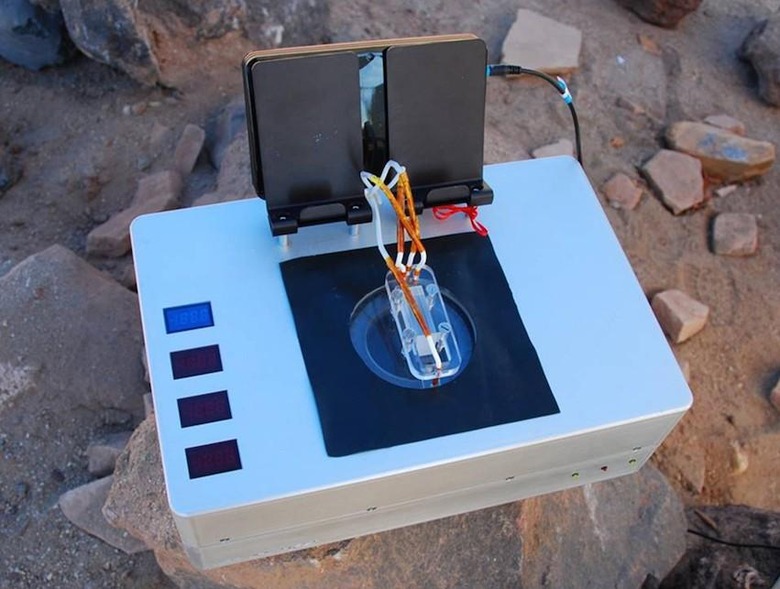This 'Chemical Laptop' Will Help NASA Detect Life On Other Planets
While NASA's rovers are used to explore the surface of other planets, the agency's Jet Propulsion Laboratory (JPL) has developed a "Chemical Laptop" that could accompany missions and be used to help detect signs of life. NASA describes the Chemical Laptop as akin to a small, portable laboratory capable of analyzing samples to identify materials associated with life, such as amino acids and fatty acids.
JPL notes that if the time comes for the instrument to be sent into space, it will be "the most sensitive device of its kind to leave Earth." Researchers hope to one day send it somewhere like Mars or Europa, one of the moons of Jupiter.
While it looks like and is roughly the same size as a typical laptop, the NASA instrument is much thicker to allow room for samples to be placed inside and undergo chemical analysis. Powered by a battery, the Chemical Laptop is loaded with different apps and software to perform the different analyses for amino acids and fatty acids.

In order for the Chemical Laptop to analyze something, it needs a liquid sample. Because this would be difficult to find on a planet like Mars, the instrument is outfitted with "espresso machine technology," as NASA puts it, that puts a sample into a tube of water, heats it, and then analyzes the liquid that comes out containing organic molecules.
Sending the laptop into space on a real mission is still years away, and while it still has many field tests to undergo, NASA mentions that it could serve a number of applications on Earth. This includes analyzing samples directly in the field in the case of environmental monitoring, as opposed to waiting to get them to a laboratory, or testing drugs to identify counterfeit medicine.
SOURCE: NASA
